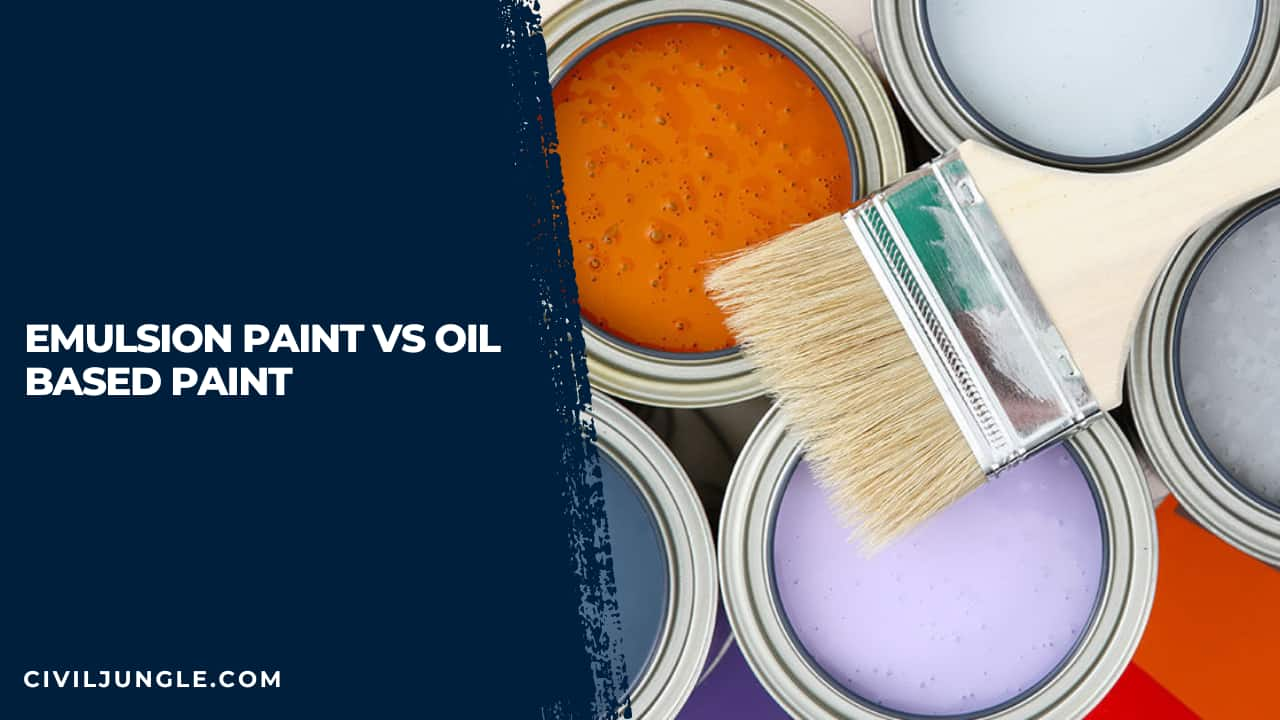
Introduction to Paints
Paints are commonly used for the decoration of the Structure. Paints are one of the important parts which give a good appearance to the Structure.
There are various types of paints are available in the market such as aluminium paint, cement paint, emulsion paint, enamel paint, plastic paint, silicate paint and oil-based Paints etc.
Many people get confused between the emulsion paint and oil-based Paints. It is very difficult to choose the Best Paint for our house. Because there are different types of paints are available in the market. Each painting has different applications and qualities.
In this article, we will give you a comparison between the Emulsion paints and oil-based paints which will help you to clear all your doubts and help you to choose the best paint for your house.
The Paints are the coating of the fluid material which is applied on the various surfaces as the final finish. Paints are used for providing a coating on the surfaces like walls, ceilings, wood and metal work etc.
Purpose of Providing Paints

There are various purposes for which the Paints are provided on the surfaces are as follows
- To provide a coating to the different surfaces.
- To protect the wooden surfaces from decay.
- To provide the decorative fish and obtain a clean and pleasing surface.
- To protect the surface from the aggressive effects of weathering.
Properties of Good Paint
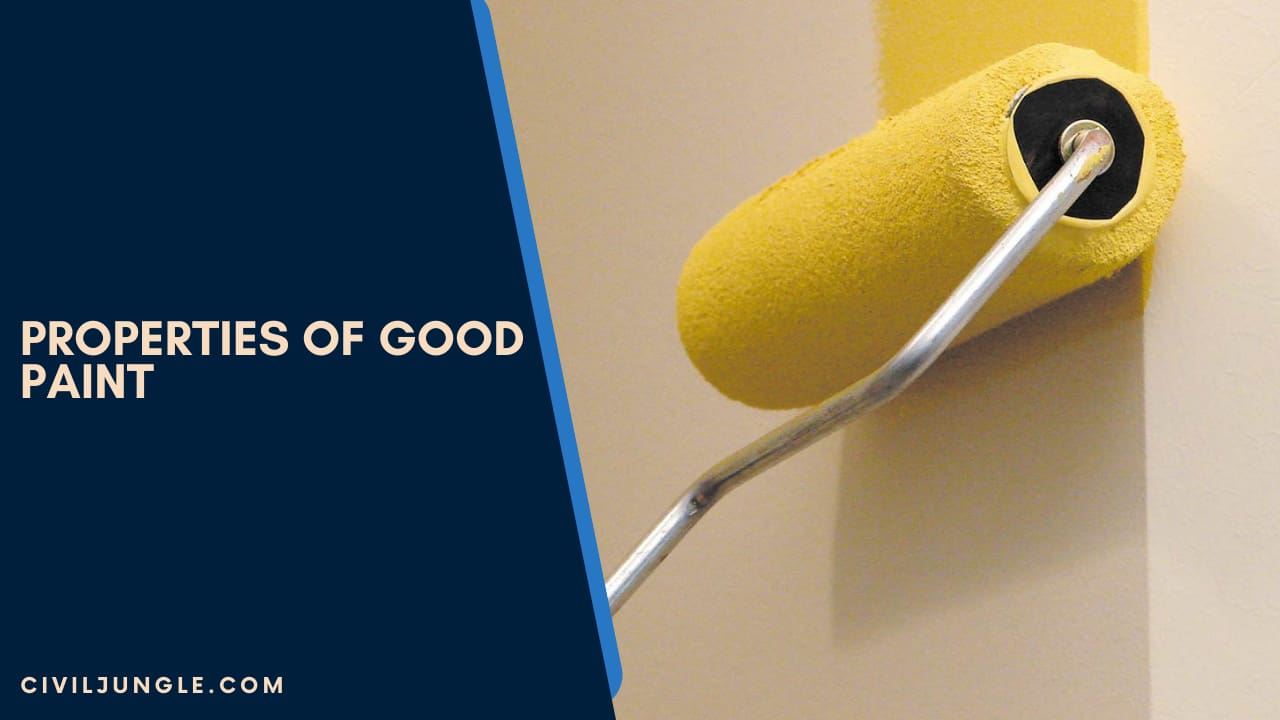
- Paint should adhere to the surface on which it is applied.
- A painted possesses good covering power.
- The paint should be smooth, hard and wearing resistance.
- The paint should not be affected by weathering agencies.
- The paint film on drying should be impervious.
- Paint should be uniform in thickness when it is applied on the surface.
- The paint should offer a smooth and uniform surface.
- Paint should be durable and strong enough to resist the penetration of moisture.
What Is Emulsion Paint?
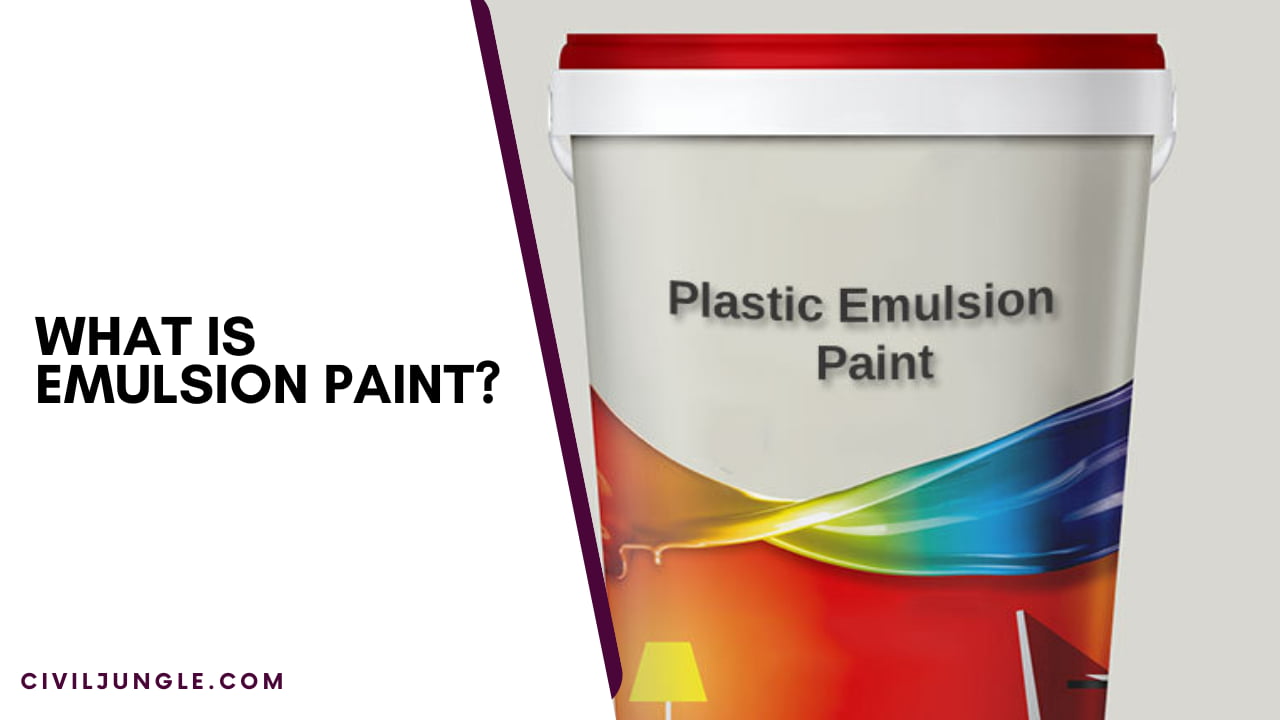
- Emulsion paint it is a type of paint which consists of a vehicle such as polyvinyl acetate, synthetic resins usually chlorinated rubber etc as the main constituent.
- In the case of the emulsion paints because of its constituents, the emulsion paints imparts an excellent quality of the alkali resistance. Emulsion Paints are quick-drying Paints which has good workability and durability.
- Emulsion Paints are recommended to use on bricks and masonry surfaces which contain free alkali. Emulsion paints are Inflammable paints. Emulsion Paints have final finish such as mat, smooth, eggshell and glossy.
Advantages of Emulsion Paint
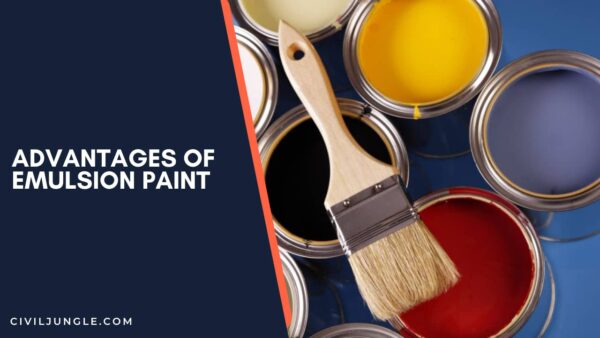
There are various advantages of emulsion paint are as follows
- Emulsion paint can be used for painting on any surface such as wooden, concrete and metallic etc.
- The emulsion is inflammable so that it does not cause harm.
- Emulsion paint gives a glossy and uniform finish to the surface on which it is applied.
- Emulsion Paints does not crack due to the temperature variations.
- The washability of the emulsion paints is very good and it can be also washed with the help of water.
Disadvantages of Emulsion Paint
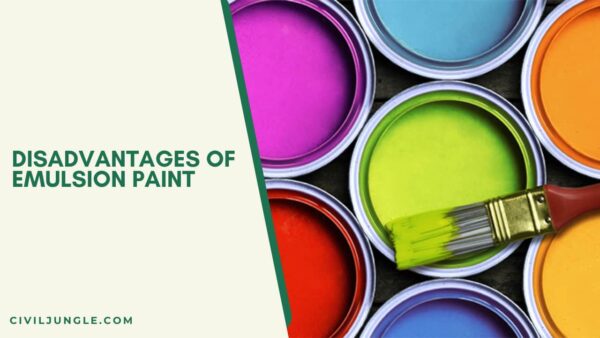
The disadvantages of the emulsion Paints are as follows
- Emulsion Paints have a low rate of drawing in an atmosphere where the humidity is very high.
- Emulsion Paints are more expensive as compared to oil based Paints.
What Is Oil Based Paint?
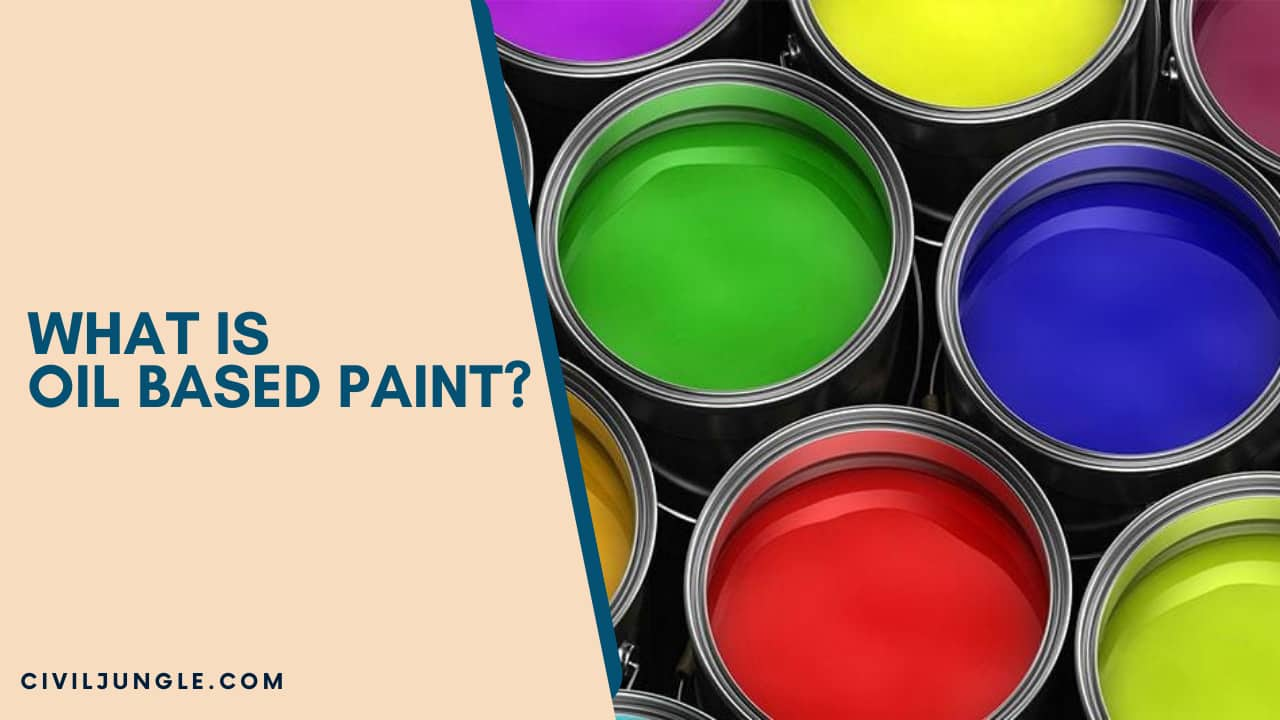
- Oil based Paints are the ordinary paints which essentially consists of two constituents which are based and vehicle. The oil painting also contains other elements such as drier, inert filler and colouring pigments etc.
- The Oil Paints are widely used in all types of surfaces which includes woodwork, walls, ceilings, metal work as well as all types of internal works.
- Oil-based Paints possesses the qualities of good opacity as well as good appearance. The oil based Paints are fairly workable paint which has resistance against the weathering action of the atmosphere.
- Oil based paint has final finish such as high gloss and opaque.
Advantages of Oil Based Paint
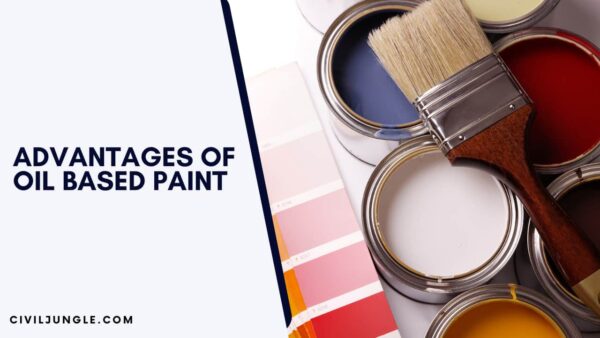
The different advantages of oil based Paints are as follows
- Oil based Paints gives a good and high gloss finish.
- Oil based Paints are less expensive as compared to the emulsion Paints.
- Oil based Paints gives a thicker layer to the surface due to which there is less number of coats are required.
- The oil based paints are more durable and hard.
- Only based Paints have good adhesion property.
Disadvantages of Oil Based Paint
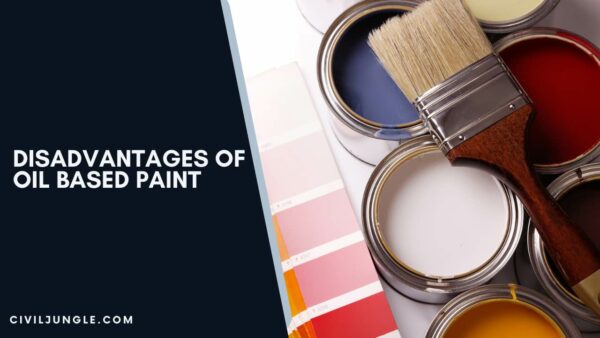
The disadvantages of oil based paints are as follows
- The oil based paints take longer time to dry.
- Oil based paint cannot be used on the untreated walls or the surfaces without any application of primer.
- The oil based Paints consists of toxic elements which may cause harm.
- Oil based Paints have strong order and they are flammable in nature.
- Oil based Paints can track the dust particles and insects when they are in the which condition.
Difference Between Emulsion Paint and Oil Paint
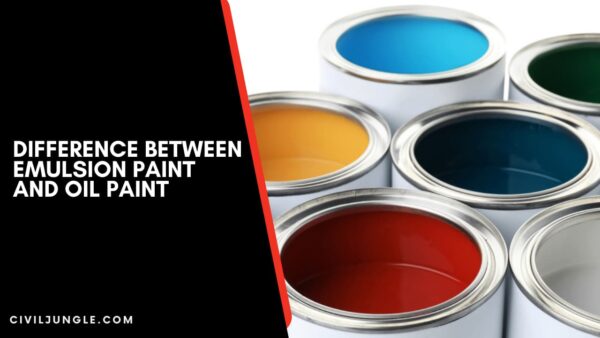
The differentiation chart between the Emulsion Paint and Oil based paints.
| Sr.No. | Emulsion Paint |
Oil Based Paint |
|
|
1 |
Definition | Emulsion paints are the water-based paints with various non-volatile substances like Alkyd resins, acrylic resin and epoxy as a binder. | Oil based paint is a type of paint which consists of pigments suspended in the drying oil commonly linseed oil. |
|
2 |
Odour of the paint | Emulsion paints have a light odour. | Oil based paints have a strong odour. |
|
3 |
Durability of the paint | Emulsion paints are more durable and do not crack. | Oil based paints are less durable as compared to the emulsion paint and turn yellow with time and may cracks. |
|
4 |
Solvent | In the Emulsion paints water is used as a solvent. | Oil based paints do not require a solvent. |
|
5 |
Use of Thinner in the paint | There is no need for thinner in the emulsion paints. | Oil based paints required naphtha, turpentine and white spirit as a thinner. |
|
6 |
Binder | Alkyd resins, acrylic resin and epoxy are used as a binder in the Emulsion paints. | Linseed oil, tung oil, poppy oil and nut oil are used as a binder in the oil based paints. |
|
7 |
Drying time of the paint | Emulsion paints dries quickly. | Oil based paints take time to dry. |
|
8 |
Washability | The washability of the emulsion paints is good and it can be washed with the help of water. | The washability of the oil based paint it is average and it cannot be washed with the help of water. |
|
9 |
Hardness | The hardness of the emulsion paints is more. | The hardness of the oil based paints is less as compared to the emulsion paints. |
|
10 |
Coverage Area | One litre of emulsion paint can cover 100-160 square feet of area for two coats. | One litre of oil based paints can cover 100-130 square feet area for two coats. |
|
11 |
Flexibility of paints | Emulsion Paints are flexible and do not crack due to the variation in the temperature. | The oil based Paints are not flexible and can crack due to the variation in the temperature. |
|
12 |
Flammability of paints | Emulsion Paints are Inflammable. | Oil based paint is flammable. |
|
13 |
Toxicity | Emulsion Paints are completely safe for the human and does not cause any harm. | Oil based Paints consist of toxic elements which cause irritation of eyes and skin. |
|
14 |
Application of paints | The emulsion Paints can be used on both exteriors as well as interior areas. | Oil based paints are generally used for internal areas. |
|
15 |
Cost of the paints | The cost of the emulsion paint is more as compared to oil based Paints. | Oil based Paints are less expensive as compared to the emulsion paints. |
|
16 |
Available packs of the paints | The emulsion paints are available in the packs of 1 litre, 4 litres, 10 litres and 20 litres. | The Oil-based paints are available in the pack of 500ml,1 litre,4 litres, 10 litres and 20 litres. |
Which One Is the Best Emulsion Paint or Oil-Based Paint?
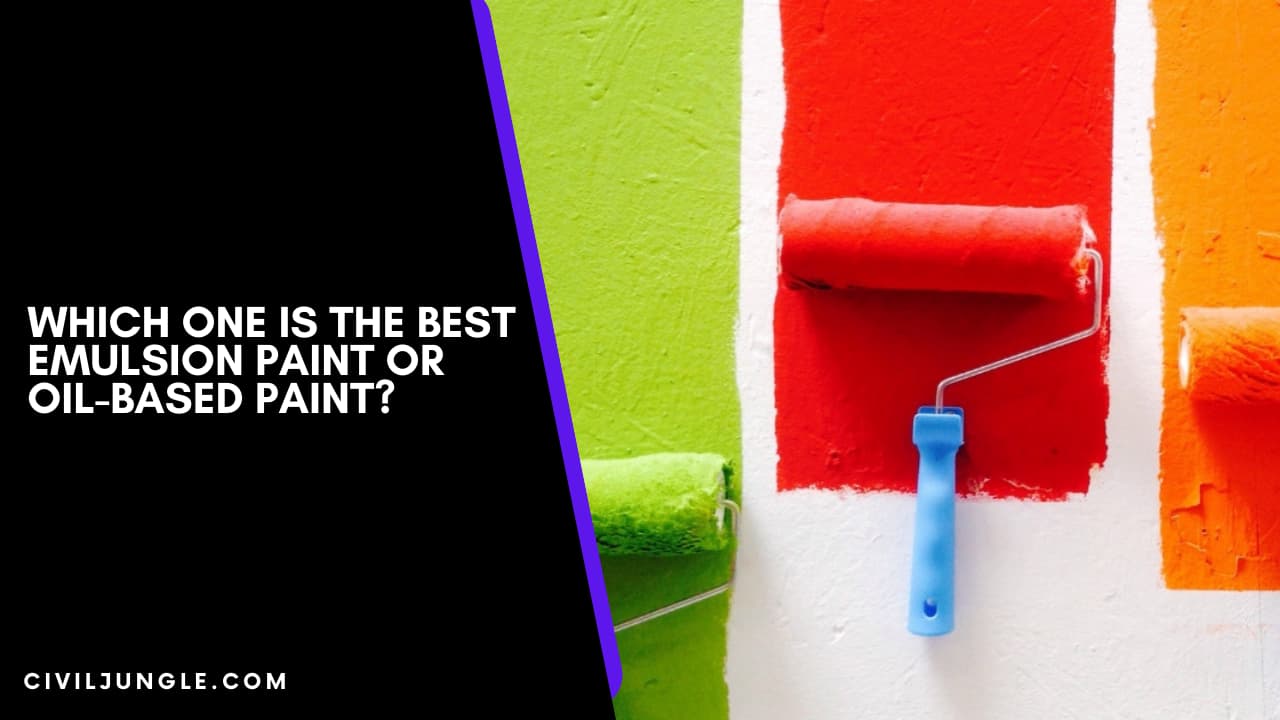
- The selection of the best paint for your home depends upon your budget and requirements.
- Emulsion Paints are widely used as compared to the oil based Paints because the emulsion paints do not cause any harm to the humans where the oil based paints consist of the toxic elements which can cause irritation of eyes and skin.
- If you are planning to colour the children room recommended using emulsion paint because the image and paints are saved and do not cause harm as far as the safety of the children is concerned.
Frequently Asked Questions (FAQ)
What Is the Main Difference Between Emulsion Paints and Oil-Based Paints?
Emulsion paints are water-based and use resins like acrylic or alkyd as binders, while oil-based paints use drying oils such as linseed oil. Emulsion paints generally dry faster and are less toxic, whereas oil-based paints provide a more durable finish but take longer to dry.
Which Type of Paint Is Better for Indoor Use?
Emulsion paints are often preferred for indoor use due to their low odor, quick drying time, and washability. They are also less toxic compared to oil-based paints, making them safer for indoor environments.
Can Emulsion Paints Be Used on Exterior Surfaces?
Yes, emulsion paints can be used on exterior surfaces, but it is essential to choose a type designed for outdoor conditions to ensure durability and weather resistance.
Are Oil-Based Paints Suitable for Wooden Surfaces?
Yes, oil-based paints are suitable for wooden surfaces and provide a durable and glossy finish. They are often used for woodwork, but proper priming is required for best results.
How Do I Choose Between Emulsion and Oil-Based Paints for a High-Traffic Area?
For high-traffic areas, emulsion paints are typically recommended due to their durability and ease of maintenance. They are also easier to clean and less prone to yellowing over time compared to oil-based paints.
What Are the Health and Safety Considerations for Using Oil-Based Paints?
Oil-based paints contain solvents that can be toxic and have strong odors. Proper ventilation is necessary during application and drying. Protective gear such as masks and gloves should be worn to avoid inhalation of fumes and skin contact.
How Long Does It Take for Each Type of Paint to Dry?
Emulsion paints generally dry faster, often within a few hours, while oil-based paints can take up to 24 hours or more to fully dry.
What Is the Cost Difference Between Emulsion and Oil-Based Paints?
Emulsion paints are usually more expensive than oil-based paints. However, the overall cost should also consider factors like durability, maintenance, and application ease.
Can Emulsion Paints Be Used Over Oil-Based Paints?
It is generally not recommended to apply emulsion paints directly over oil-based paints without proper surface preparation, as it may lead to poor adhesion. In such cases, sanding and priming the surface is necessary before applying emulsion paint.
How Do I Maintain Surfaces Painted with Emulsion or Oil-Based Paints?
Surfaces painted with emulsion paints can be cleaned with water and mild detergents. Oil-based paints may require special cleaning solutions and more careful maintenance to avoid damage and maintain their appearance.

